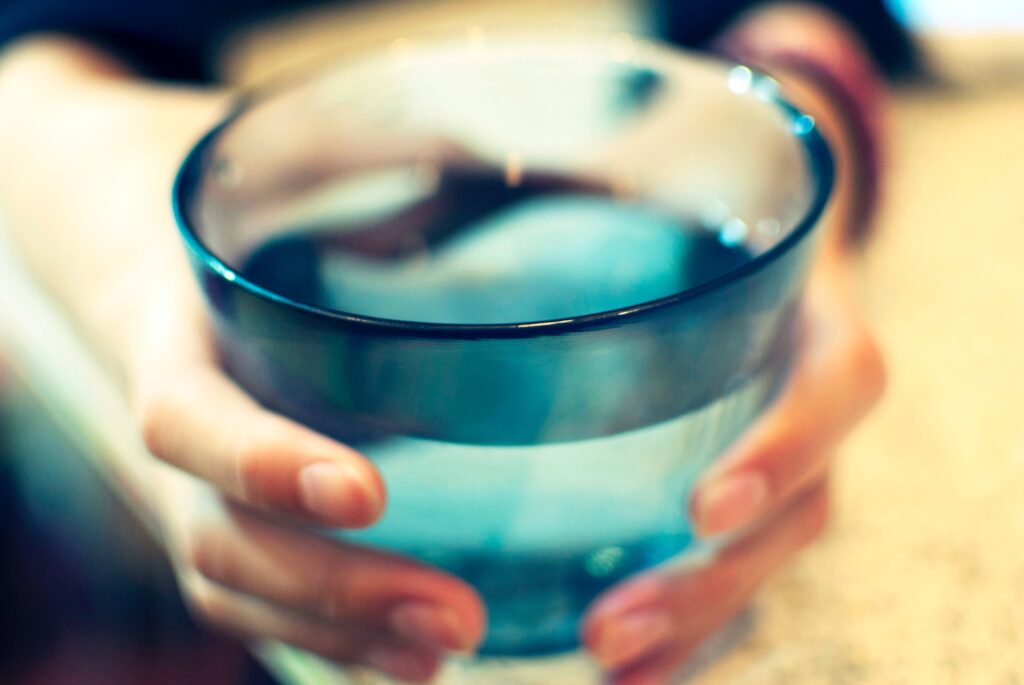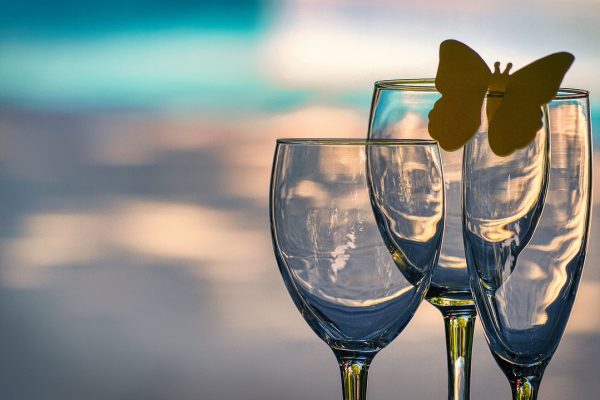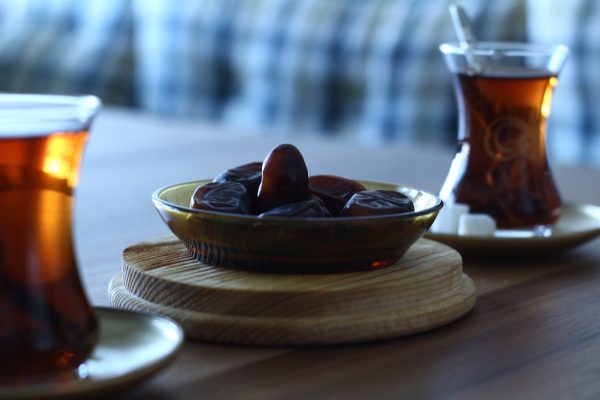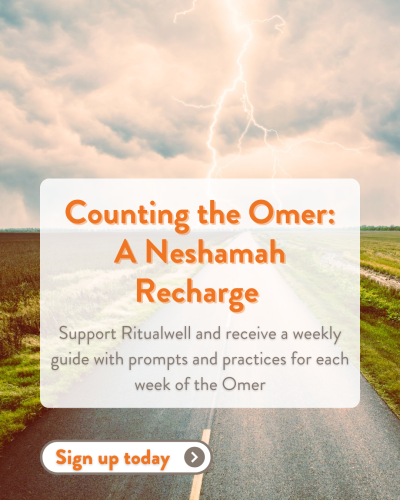If the ritual is carried out by a leader/representative of the community on behalf of the community: a clear glass of drinking water.
If the ritual is carried out by the entire group/community: small cups of drinking water for all participants.
Ritual Steps:
1. Leader holds up the glass or water/ all raise their cups of water.
2. Leader says:
We enter this sacred time through ritualizing our desire to release ourselves from vows that we could not keep. We prepare to let go of the mistakes and regrets of the past year.
We prepare to enter this time of ענה נפש (inna nefesh), afflicting our bodies, by abstaining from physical water so as to turn more fully to “the Fount of Living Waters” (Jeremiah 17:13).
We join with the Psalmist (Psalm 42:2–3) in our longing for deep connection to the Holy One and say:
Like a hind crying for water
my soul cries for You, O God
my soul thirsts for God, the living God …
And we heed the words of the Prophet Isaiah (55:1), who encourages us: “All who are thirsty, come for water.”
Makor Mayyim Hayyim, Source of Living Waters, you are our limitless reservoir of spiritual renewal. As we enter this fast of Yom Kippur, mindfully engaging in fasting from water to whatever degree our health permits, may we drink deeply from You, our Ever-Flowing and Ever-Renewing Source.
3. All say (using feminine or masculine language or both):
בְּרוּכָה אַתְּ יָה אֱלֹתינוּ רוּחַ הָעוֹלָם, שֶׁהַכֹּל נִהְיֶה בִּדְבָרָהּ
Berukhah at Yah Elotenui Ruakh Ha’olam, shehakol nihyeh bid’varah
Blessed are you, Yah, Spirit of the Universe, through whose word all things come into being
בָּרוּךְ אַתָּה יְ‑יָ אֱ‑לֹהֵינוּ מֶלֶךְ הָעוֹלָם שֶׁהַכֹּל נִהְיָה בִּדְבָרוֹ
Barukh atah Yah, Eloheinu Melekh Ha’Olam, shehakol nihiyeh bid’varo
Blessed are You, Yah, our Source, by whose word all things came to be
4. Drink
If the entire community carries out the ritual, the cups should be collected and cleared away in silence before beginning Kol Nidre.













